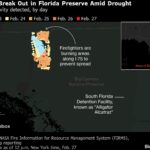The oil industry may be to blame for millions of dollars of damage and lost business along Alabama’s coast but it’s the insurance industry that holds the key to the state’s coastal recovery.
This truth is reinforced over and over again in the comprehensive report by the Alabama Coastal Recovery Commission, entitled “A Roadmap to Resilience.”
Civic and business leaders in Alabama are hoping to turn the oil spill crisis into an opportunity to plan a better future for the state’s coastal economy and communities, a future where the effects of disasters are mitigated, the emergency response is pre-planned and the return to normalcy is hastened — in great measure because sound risk management principles have been followed and private insurance markets are in optimal position to respond.
At the same time that it found insurance to be critical to the future, the commission found that the current insurance market is unsustainable. So there is work to do.
The report emphasizes the importance of cooperation between the private and public sectors — in helping the region achieve sustainable recovery.
The insurance industry has already acknowledged the need for better information. In November, insurers joined together to launch the new Alabama Insurance Information Service that will work through the state’s news media to improve public understanding of insurance and safety issues.
While the AIIS can certainly play a role, the job will take more than just private insurers coming together and talking to the media. Everyone with a stake in a healthy and sustainable insurance system must be involved, including multiple government agencies, policyholders, companies and agents, as well as those who build, sell and finance homes.
The report recommends creation of a new Insurance Institute to encourage stronger building codes and mitigation and to be a clearinghouse for information. It could also spearhead public-private partnerships and alternative insurance products.
“A Roadmap to Resilience” may have been prompted by the effects of the Gulf oil disaster on Alabama. But the roadmap could be a model for other states and communities, whether they are susceptible to oil spills, hurricanes, earthquakes or any type of disaster.
It’s important that the report not just gather dust on a shelf. Alabama’s elected officials and government agencies, including the insurance commissioner, must find ways to work with each other and with the private sector and all stakeholders to prioritize the recommendations in the report. It would be a shame after the next crisis to have to ask, whatever happened to the roadmap?
Was this article valuable?
Here are more articles you may enjoy.


 Meta Loses Insurance for Defense in Major Social Media Addiction Litigation
Meta Loses Insurance for Defense in Major Social Media Addiction Litigation  Zurich Insurance Said to Near Beazley Deal Funded by Equity Sale
Zurich Insurance Said to Near Beazley Deal Funded by Equity Sale  Baldwin Posts Fourth Quarter Loss; Carlisle Takes Over Underwriting Group
Baldwin Posts Fourth Quarter Loss; Carlisle Takes Over Underwriting Group  Deep Freeze and Drought Fueled a Massive Florida Wildfire
Deep Freeze and Drought Fueled a Massive Florida Wildfire 


